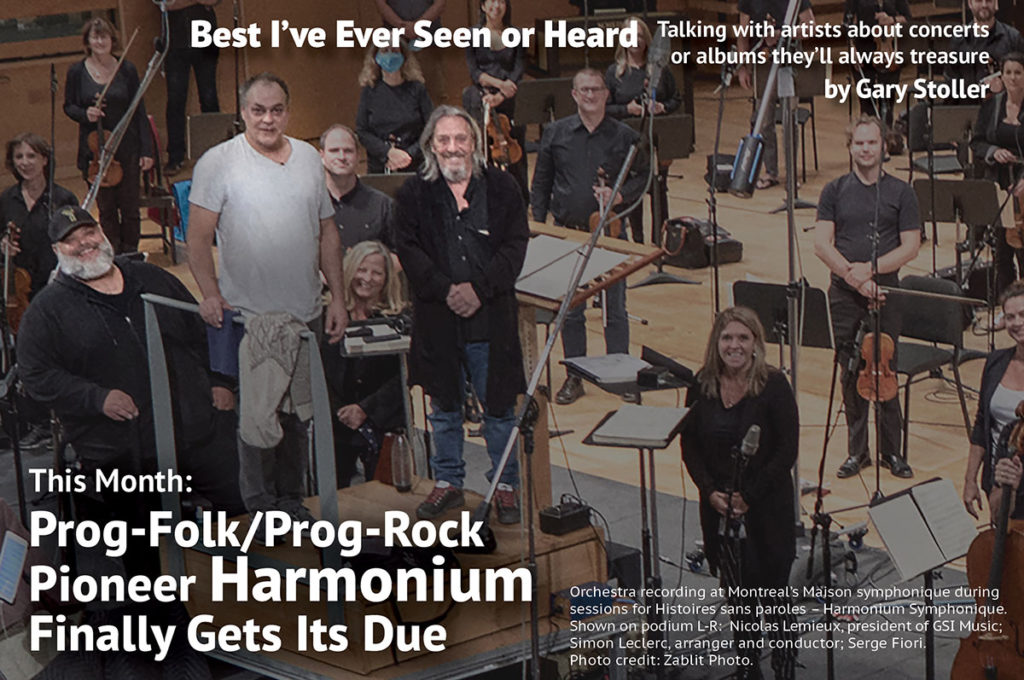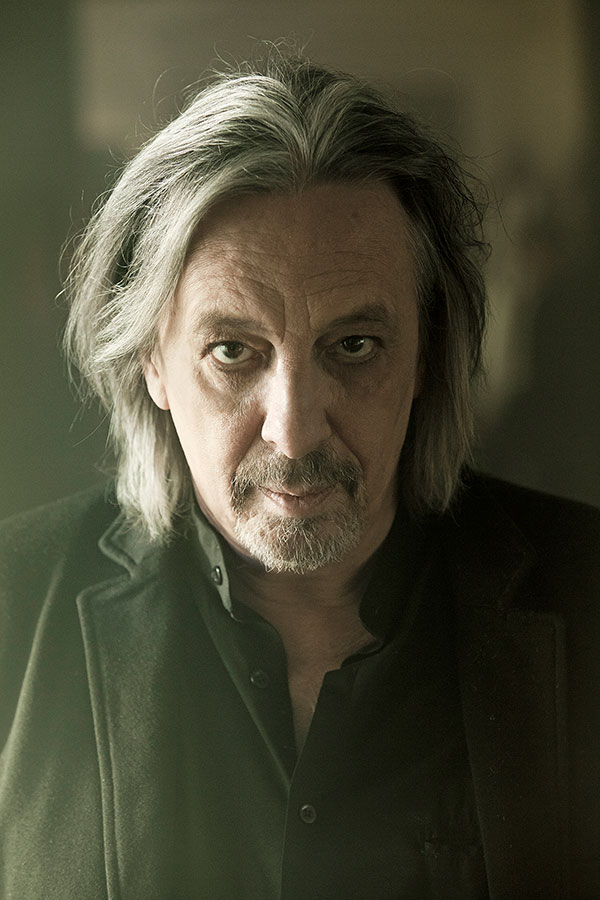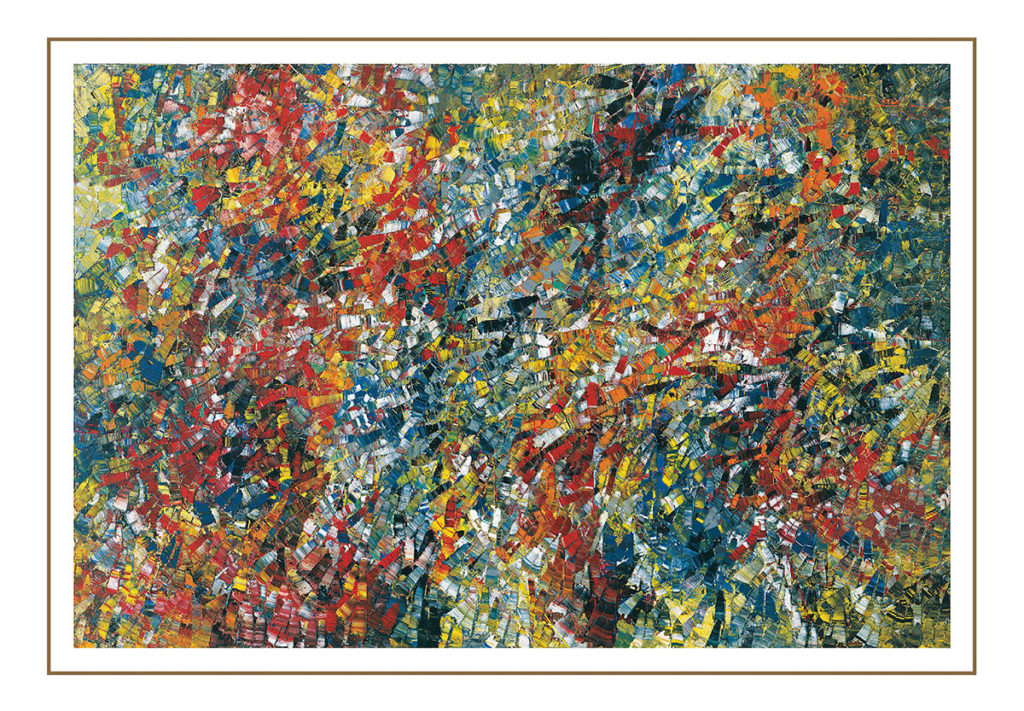
Photo credit: Zablit Photo.
Led by Pink Floyd, Yes, King Crimson, Genesis and Jethro Tull, the number of great prog-rock bands is legion. Another great one, Harmonium, remains unknown to most people — even die-hard rock fans — south of the Canadian border.
Harmonium, which began as a Canadian folk trio consisting of guitarists Serge Fiori and Michel Normandeau and bassist Louis Valois, lasted only five years and released three albums in the 1970s. Rolling Stone put the group’s second record, 1975’s Si On Avait Besoin D’Une Cinquieme, on the magazine’s list of the 50 Greatest Prog-Rock Albums of All Time, calling the album “the pinnacle of the entire folk-prog movement.” Now the band is getting renewed acclaim in its home country.
Sixty-eight musicians of the Orchestre Symphonique de Montréal (OSM) recorded Histoires sans paroles – Harmonium Symphonique, a symphonic re-interpretation of Harmonium’s music for a 2-CD set that was released in 2020 and a four-vinyl, two-CD box set that was released last year. More than 100 artists with another orchestra will perform Harmonium’s songs on May 24 at the Cogeco Amphitheatre in Trois-Rivières, Quebec.
The Montreal symphony’s recording was a challenge, because it was recorded during the pandemic in summer 2020 at Montreal’s 1,900-seat Maison Symphonique.
“We had to respect the distance between the musicians because of COVID,” recalls Fiori, who released two solo albums after Harmonium disbanded. “To maintain social distancing between all the players, we had to build and add an additional 20 feet in front of the original stage. It was an amazing effort.”
The orchestra’s conductor, Simon Leclerc, who listened to Harmonium’s music for six months before writing symphonic versions, stood 100 feet from the furthest musician.

“The orchestra was used to playing very close to each other, so there were communication issues because of the social distancing,” Fiori says. “There were also delays while sound engineers captured the performances, including Rick Winquest, a great engineer who was working remotely and virtually in Los Angeles. And we did it in four days, which is amazing.”
Listening to Leclerc’s symphonic versions of Harmonium’s songs was quite a thrill for Fiori.
“When I was sitting in the hall, it’s just impossible to describe hearing those musicians play my music,” he says. “I was floored by how beautiful it was. And I have to credit Nicolas Lemieux (the president of music label GSI Musique and the project’s artistic director) for having the vision and giving us the ability to embark on this project.”
The symphonic versions of Harmonium’s music are grand, joyful and complex, and a first-time listen to the original 1970s prog-rock albums is quite a rewarding experience. The group first released its self-titled Harmonium in 1974, followed by Si On Avait Besoin d’Une Cinquième Saison in 1975 and L’Heptade in 1976. The group’s final 1977 live tour was recorded on a two-LP 1980 album En Tournée.
The three Harmonium studio albums — all sung in French — are in Bob Mersereau’s book, The Top 100 Canadian Albums. Displaying a slew of influences, Si On Avait Besoin d’Une Cinquième Saison is a prog-rock masterpiece — sometimes bombastic, yet often subtle, as it seamlessly hops from genre to genre. Do I hear folk, rock, jazz, orchestral flourishes, experimental moments, ragtime, barrelhouse piano, Parisian or Montreal street music, inspired singing and vocal harmonies? The true magic is that all the different genres are used wisely on the palette — they never clash, and each distinctively adds to the album’s creative brilliance.
So I ask Fiori, who now lives about 280 miles north of Montreal in Lac Saint-Jean, why such a highly acclaimed band making extraordinary music ceased playing together after just five years.
“When I finished L’Heptade and we had toured it for three years nonstop, I was done,” he explains. “At that time, I thought I couldn’t go further with that band. Everything starts with the writing, and I couldn’t go any further than that album. People had expectations that were so high, so, when I finished that tour, I said I was not going to create a problem for the other musicians or me. So, I switched. Richard Seguin (a French Canadian singer-songwriter often dubbed as Quebec’s Bob Dylan) and I did a multiplatinum album 200 Nuits a l ‘Heure, which is a lot lighter album. I had the privilege of doing it, because it wasn’t Harmonium.”
And, Fiori adds, he “was totally burned out from the touring, doing 200-plus shows a year, writing all the material and recording it. It’s grueling. It took me five years to recuperate.”
I ask Fiori how he views the three Harmonium albums today, 47 years after the initial one.
“Actually, I was just thinking about that, because, as I look back, I don’t know,” he responds. “Something happened to me then that changed me. A year before I wrote the first album, I wouldn’t have written like I did on the album, because I was basically a rock and roll guitar player. So, sometimes I listen to it, and I can’t figure out who wrote that music. I’m even singing, and I really wasn’t a singer. I didn’t play acoustic guitar, but now I had a 12-string. Yeah, good, man — make it more difficult for you. And then I sometimes think I have the answer, but I don’t.”
It’s often difficult for a songwriter to identify one’s greatest songs, and Fiori agrees it’s like asking which is a favorite child. But then he mentions two tracks on L’Heptade: “L’Exil” and “Comme Un Sage.”
“That’s where the writing was beyond even what I thought I was able to do,” he says. “It came from somewhere else. So, if I listen to those songs, I’m still amazed.”
Fiori says a Harmonium show in London, Ontario, stands out as the best one performed by the group.
“The booker there had the weird idea to book two shows on that night,” he says. “It was a three-hour show, and they gave us a very little break between shows. We were so in tune during the second show, so relaxed, so still. I never heard a vibe like that on stage.”

I ask Fiori about another vibe: What three albums by other artists are the best ones he has heard?
“I have to include the Beatles, because that’s god,” says Fiori, citing the Beatles’ entire catalog. “That’s where everything happened. Listening to their music always takes you somewhere else.”
Genesis and Joni Mitchell are also on Fiori’s best-album list.
“Genesis’s Trick of the Tail floored me,” he says. “Peter Gabriel left the band, so Phil Collins had to do the miracle of singing all that material. They regrouped, and the songs on that album, his voice and the arrangements are truly amazing. My third best is anything and all that Joni Mitchell did.”
Fiori has no plans to make his own albums in the future. He has been working on a different project, interviewing artists, politicians and other notables in Quebec for a web series and a TV show called Chez Padré avec Serge Fiori.
He will also head to Trois-Rivières on May 24 to hear more than 100 musicians play symphonic versions of his songs. Such an honor wasn’t expected.
“Everybody needs to believe in themselves, because you never know what can happen,” he says. “Look what happened to me: I wrote Harmonium’s music when I was 21 to 25 years old, and, now, years later, it’s hard to believe that my music would become symphonic. It’s a dream come true. So, believe in yourself and be grateful.”
